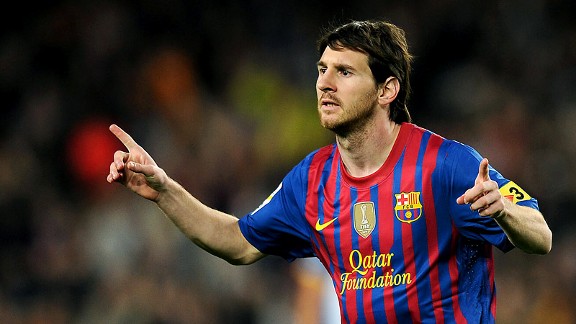During his early years in the São
Cristóvão, Rio de Janeiro, Leônidas’ family had high hopes of him
becoming a lawyer or doctor. Back in those days Brazilian children were
actively discouraged from pursuing a career in soccer. However, Leônidas had
his mind occupied with nothing but thoughts of the game that he loved so much.
Creativity and determination was his
trademark. Like most kids in his neighborhood, he learned the game playing
bare-footed on the streets. Unable to curb his enthusiasm for the sport, his
family allowed him to leave school at the age of 14 to play for Sírio
Libanês
scoring 50 goals in 47 games. After turning 16, Leônidas
joined Bonsucesso FC scoring 55 goals in 51 games. Interesting note: during
this time Leônidas also played
Basketball for Bonsucesso and became State Champion.
In 1933 at the age of 20, He Left Rio to go to play for Peñarol
in Uruguay coming back to Brazil after 1 year to play for Vasco da Gama.
In
1934 World Cup in Italy was his first major competition with Brazil National
team. Brazil had a horrible participation and was eliminated by Spain 3-1. Leônidas
scored the only goal for Brazil in this competition.
In
1935 he switch club once again, this time he went to play for Botafogo in Rio
de Janeiro. At the age of 23, Leônidas
was a major name in the Brazilian soccer, and after 1 year left Botafogo for
Flamengo. For the next 5 years he won 3 state Cups and scored 153 goals in 149
games. In addition, he became one of first African Brazilians to play for
Flamengo. Leônidas was also one the first players to win the Rio de Janeiro State
Championships for 3 different clubs.
The
1938 France World Cup was undeniably Leônidas’. He was able to perform above
the expectation of all Brazilians fans getting the nickname Rubber Man and the
Black Diamond.
Brazil’s
first match, a 6-5 extra-time win over Poland, would go down as one of the most
dramatic in FIFA World Cup history. Leônidas hit
a decisive hat-trick, including what turned out to be the winning goal, which
came about in unusual circumstances. Despite having lost his boots in the
sticky mud, the streetwise Brazilian star still had the presence of mind to
pounce on some slipshod handling by the Polish goalkeeper Edward Madejski and
turn the ball into an empty net.
The Brazilians found themselves in
another battle in the quarter-finals, where, despite being two men down, they
earned a 1-1 draw with the former Czechoslovakia. Leônidas scored
yet again and also showcased to the globe his very own innovative trick: an
acrobatic bicycle kick that was met
with a mixture of admiration and shock.
“Whether he’s on the ground or in
the air, that rubber man has a diabolical gift for bringing the ball under
control and unleashing thunderous shots when least expected,” wrote Raymond
Thourmagem in Paris Match. “When Leônidas scores a
goal, it all feels like a dream.”
 Coach Ademar Pimenta decided to
change the starting line-up for the replay game against the Czechs,
retaining only Leônidas. Brazil won
the game 2-1 but lost him with a muscle strain to the semi-final against world
champions Italy. He looked helpless as the Brazilians went down 2-1
defeat. He regained full fitness in time for the third-place match, scoring
twice and setting up another as Brazil overcame
Sweden 4-2 to take their first podium place in the world finals. With seven
goals in four games, the Black Diamond returned to a hero’s welcome, with the
Golden Shoe safely in his possession.
Coach Ademar Pimenta decided to
change the starting line-up for the replay game against the Czechs,
retaining only Leônidas. Brazil won
the game 2-1 but lost him with a muscle strain to the semi-final against world
champions Italy. He looked helpless as the Brazilians went down 2-1
defeat. He regained full fitness in time for the third-place match, scoring
twice and setting up another as Brazil overcame
Sweden 4-2 to take their first podium place in the world finals. With seven
goals in four games, the Black Diamond returned to a hero’s welcome, with the
Golden Shoe safely in his possession.
After 5 years playing for Flamengo, in
1942 Leônidas transfer for the last time to Sao Paulo FC. The deal was a
Brazilian record at the time. He won 5 times the Sao Paulo State Cup, scored
141 goals in 212 games. After 12 years Leônidas
retired and up to this day he holds the record for goal scored
average for the Brazil National Team.
37 goals in 37 games (1%), Pele
(0,83%) , Romário
(0,80), Zico (0,70), Ronaldo (0,72), Beteto (0,46), Jairzinho (0,40), Rivelino
(0,33), Tostão
(0,55), Ademir de Menezes (0,85), Ronaldinho Gaúcho (0,56).
The Great Leônidas was a victim
of Alzheimer disease and passed away in January 24, 2004. He was 91.





